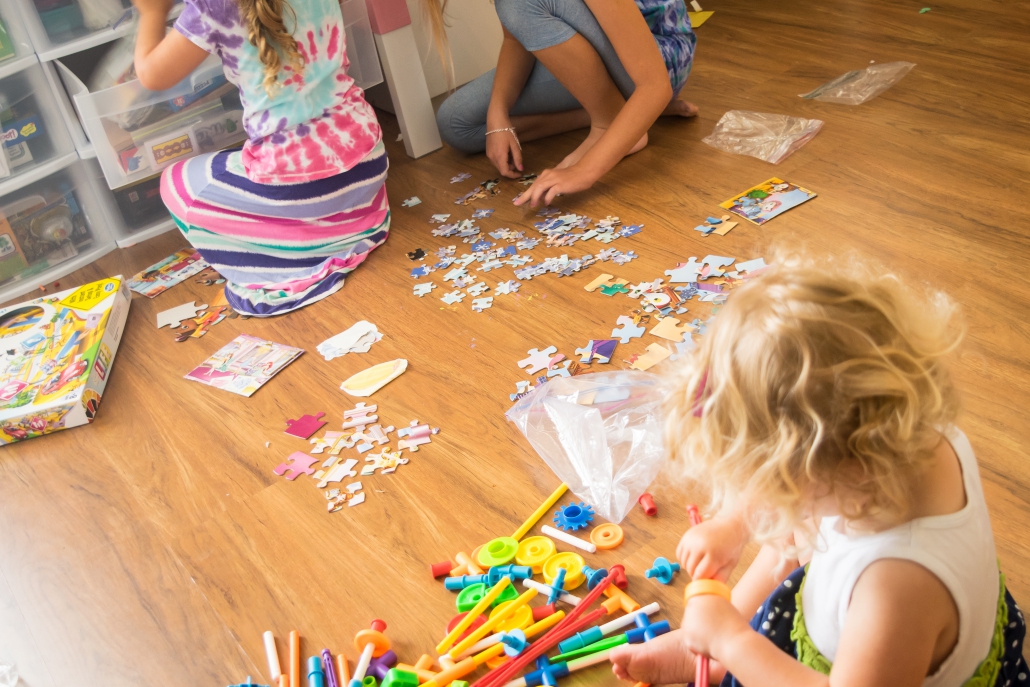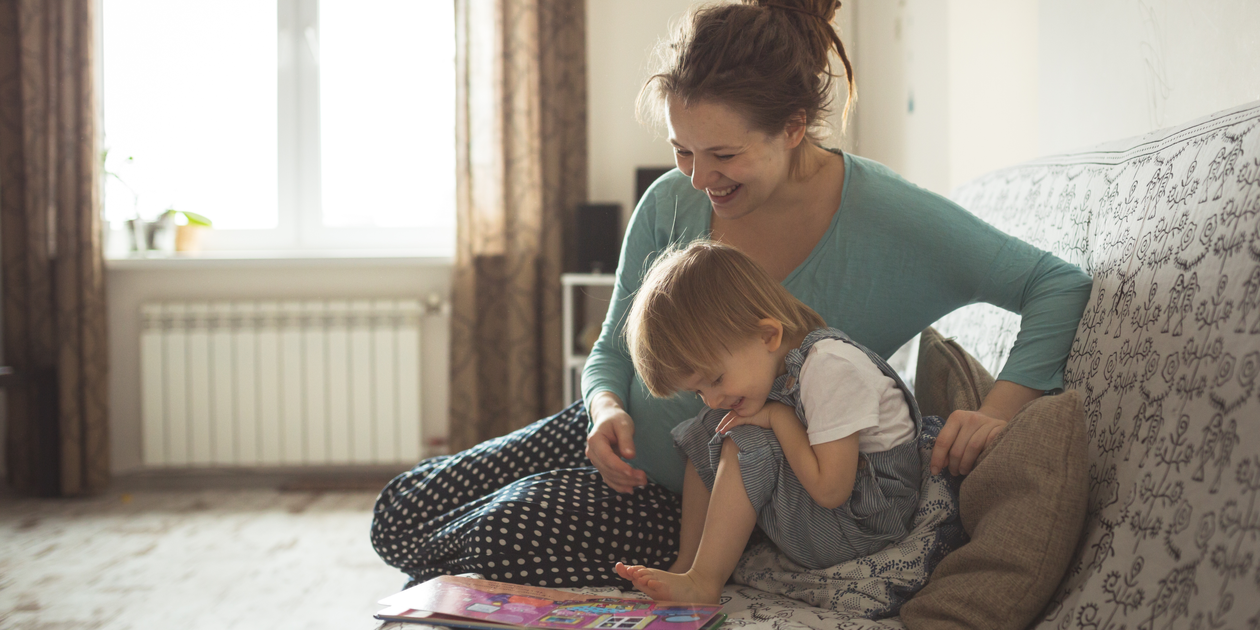Supporting speech and language development during lockdown
by Julie Holmes on Mar 26, 2020

Activities to support communication skills with children – no special toys needed!
With lockdown now in effect and schools and nurseries closed, parents are faced with the daunting prospect of keeping their kids entertained for hours on end, while simultaneously keeping them fit, healthy and educated. However, fear not, we have lots of low cost activities to support development of speech and language skills and to see you right through this challenging time.
Why is play important?
In my speech and language therapy sessions, I absolutely love doing communication activities that are ‘hands-on’, engaging and based around play. Play by its definition is fun and there is lots of research around the importance of play for learning and development. If you are interested in the science and research behind the importance of play for all aspects of child development have a read of this article as it summarises the topic well.
Play is learning
Play can sometimes be thought of as something that is done outside of learning, an extracurricular activity. However, as outlined in the above article we know this is not true. Children need play to support their development and thus should be included in their everyday learning environments. Someone once told me ‘play is children’s work’ and this has stuck with me through my years as a speech and language therapist as it really highlights how important it is.
Unstructured play is even better
In the article, they report that unstructured outdoor play is the best exercise method for children. Children are still allowed to play outside in the garden and in parks with members of their immediate family household. Unstructured play is good news as it means you don’t need to think of specific play activities all throughout the day. It may even mean you get the chance to have a cup of tea whilst your children play outside safe in the knowledge that you are supporting their development.
What does play have to do with communication?
For those times when children come back inside and exclaim ‘I’M BORED’ I have compiled a list of my favourite activities to keep children entertained which also have a strong communication focus. These activities can be done with all children to support communication in general or indeed if you have more specific speech/language or communication goal in mind for your child.
The skills focused on range from attention and listening, speech and literacy skills, understanding language, vocabulary development, auditory memory, social skills and inferencing and prediction skills. The children will be so engrossed and having so much fun that they will not even notice they are developing these skills.
1. The good old board game

Okay, this is a simple one but should not be overlooked. With so many toys on the market, it can be easy to forget about the humble board game. Take any board game or group game that you already have out of the cupboard. Sometimes we can forget what we have at home but it is definitely worth a rummage to see what is there. Some favourites are Pop-up Pirate, Kerplunk and Buckaroo. I have played some of these games tons of times with children and it amazes me how many times children can play these games without getting bored.
Key to supporting communication
The key element to its success is having an adult there facilitating it – to support turn-taking or talk about winning/losing etc. The amount you will need to step in or support will vary depending on the game and age of the children. Games like this support turn-taking skills, attention and listening, vocabulary skills and social skills. Taking social skills as an example, you may have difficulties at home with people all talking together at the same time or some issues with ‘sharing’. These games help to practice that idea of ‘taking turns’ in a fun way. I love games like Pop-up-pirate as they do not go on too long and there is an exciting endpoint where something happens or pops up. These are particularly good for younger children who may have shorter attention spans. Old classics like snakes and ladders and Monopoly are great for older children too.
2. Ice Excavation

I saw this online the other day and thought it was an amazing idea. With Spring on its way and the weather warming why not give this a try, it’s just so simple to do. All you need to do is collect a bowl of your child’s small toys, fill with water and place in the freezer. You can add food colouring or glitter to it to make it more interesting. When it’s frozen take it out, tip the icy mass out of the bowl in the garden or in a tray inside. Voila! Give the children the challenge of doing an excavation to find the items.
You could also freeze the items individually using plastic mugs and have a competition to see who can get their toy out first. There are so many targets you could work on for this some ideas are:
Vocabulary
Use toys related to a certain category e.g sealife – name the items as they excavate them. If your child can easily do this ask them to think of more examples from the category. You can learn more about vocabulary teaching here
Problem-solving
Do not give your child the means to rescue the items and see what they come up with themselves e.g pouring hot water to melt the ice, using a spoon to pick at the ice.
Grammar
Practice using irregular past tense and sentences as your child finds the items encourage them to tell you what they ‘found’ e.g. ‘I found the fish’.
Once your child has found and named all the items place a towel over them and see how many he/she can remember. Now I just need to work out a way I can incorporate a frozen lump of ice into my online speech therapy sessions!
3. Slime time

Slime seems to be very popular right now and I have found the perfect slime recipe you can make yourself at home from this wonderful website called the imagination tree.
You might be thinking how can slime help my child’s communication? It is so versatile, and I plan on using this in so many ways. Firstly, when making the slime you can help your child to follow directions, choose colours/glitters etc, learn new words including ‘mix’, ‘measure’, ‘pour’. You can work on concepts including ‘few’ ‘add’ ‘half’ ‘full’ and numbers. Once the slime is completed you can use words like ‘squish’, ‘snip’, ‘stretch’ to play with the slime. You could also use the slime-like Play-dough to make other objects e.g. make me a cloud, tree, snowman. Playing with slime is also an excellent sensory and fine motor activity and children absolutely love it!
4. Mini chefs challenge

I love this idea as involving children in cooking has so many benefits. It may take a little more time initially, but it really is a great way to get your child to understand more about food and in some cases, it can help children with restrictive diets to eat a wider range or become a little more adventurous with food. It also helps with communication in the following ways:
Following instructions
While you are cooking ask the child to get things from the kitchen. You can make this easier by asking for one thing at a time, showing your child where it is etc. You can make it more challenging by asking for more than one item and/or giving your child a clue what the item is. I need one yellow fruit and see if they can guess what it is.
Sequencing
Give instructions like, ‘First pour in the water then mix together’ and ask your child to tell you what they did afterwards supporting them to use the words first/then. This will help them to organise their thoughts and ideas and tell stories/give explanations in the correct order. There are also some great child-friendly recipes with pictures for free online have a go at following one of these asking your child to tell you what you need to do next in the recipe.
Vocabulary
There are lots of new words linked to cooking and food that you could use depending on the recipe. You could talk about mashing avocado, squeezing a lemon, chopping red onion and sprinkling salt. Yes this is my go-to guacamole recipe and it is delicious – try it out?
Social skills
If cooking with a group of children, assign roles and give only a few items ensuring there is a need to share what they have. Help the children to do this by modelling requesting language ‘can I have the spoon please?’.
Take the pressure off! Educating doesn’t have to be stressful
During this difficult time make sure you’re looking after yourself too! Try and make the learning as fun and stress free as possible. Enjoy playing/excavating/sliming/cooking and playing outside safe in the knowledge you are doing something helpful for your child.
- General mental health (36)
- General Speech & Language (32)
- School Issues (27)
- Primary Schools (25)
- Classroom Behaviour (24)
- Counselling (24)
- Anxiety (22)
- Speech and Language Therapy (22)
- Absenteeism (21)
- SENCOs (21)
- Safeguarding (18)
- Secondary & Sixth Form Schools (17)
- Social Communication (17)
- Funding (15)
- MATs (15)
- Generalised anxiety (14)
- Autism Support (11)
- Language Delay/Disorder (11)
- SEMH (11)
- Relationship Issues (10)
- AAC (7)
- ADHD Support (7)
- Speech Sounds (7)
- Autism (5)
- Hearing Impairment (5)
- Depression (4)
- Selective Mutism (4)
- Anger (3)
- Cleft Lip/Palate (3)
- Downs Syndrome (2)
- Ofsted (2)
- Phobias (2)
- Stammering (2)
- Loss (1)
- Self-Harm (1)
- Suicidal Thoughts (1)
You may also like
These related stories

How to make speech and language homework fun

Top tips to help children develop their speech and language at home
